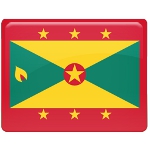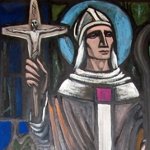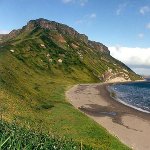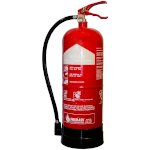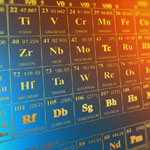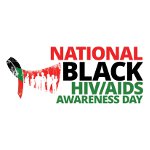Holidays Calendar for February 7, 2017
Grenada's Independence Day commemorates the country's independence from the UK in 1974. This public holiday is celebrated on February 7 each year.
Saint Mel is one of the most venerated Irish saints, along with the primary patron saint of Ireland Saint Patrick, Saint Brigid of Kildare, and Saint Columba. His feast day is observed on February 7. Relatively recently, it has begun to be observed as a holiday for single people.
Try a digital detox on February 6, 7 and/or 8 by participating in World Days Without Phone & Smartphone (Journées mondiales sans téléphone portable & smartphone), an annual campaign that was launched over two decades ago.
Russian Business Education Day is celebrated on February 7. It was inaugurated by the Russian School of Management in 2017 and has been observed annually ever since. Although this professional holiday has no official status, it is very popular among professionals in the field of business education.
Masseur Day, also translated as Massage Therapist Day, is an unofficial professional holiday observed in Ukraine on February 7. Although it hasn’t been recognized by law, the holiday is widely celebrated within the professional community.
African American Coaches Day is observed annually on the first Tuesday of February. It was created to highlight the accomplishments of all Black coaches in the United States, as well as to help combat racism in sports.
Northern Territories Day in Japan is observed on February 7 each year. It was first observed in 1981. This day is related to the Northern Territories dispute, also known as the Kuril Islands dispute, between Japan and Russia.
February 7 is National Fettuccine Alfredo Day. Did you know that this dish isn't popular in Italy, where it was invented, but adored in the USA?
On February 7, the Ministry of Emergency Situations of the Russian Federation unofficially celebrates Fire Extinguisher Day. On the occasion, the Ministry’s employees host workshops where they teach people how to use a fire extinguisher in case of emergency.
“Roses are red, violets are blue…” This Valentine’s Day poem may seem like such a cliché, but all clichés exist for a reason. Roses have long been a symbol of romantic love, so it is not surprising that the first day of Valentine’s week, February 7, is sometimes celebrated as Rose Day.
On February 7, chemistry nerds across the nation celebrate National Periodic Table Day. This amazing holiday was created to recognize the importance of the periodic table of elements and celebrate all scientists who have contributed to its invention and development.
National Play Outside Day is celebrated on the first Saturday of every month. It was created to remind everyone of the benefits of spending time outdoors and to encourage children to play outside.
National Black HIV/AIDS Awareness Day (NBHAAD) has been observed on February 7 since 1999. This awareness day was founded by several national organizations funded by the Centers for Disease Control and Prevention.
Festivals for February 7, 2017
- Sanremo Music Festival in Sanremo, Italy
- Sapporo Snow Festival in Sapporo, Japan
- Carnival of Foiano della Chiana in Foiano della Chiana, Italy
- Carnival of Viareggio in Viareggio, Italy
- Saint Martin Carnival in Marigot, Saint Martin
- Carnival of Ovar in Ovar, Portugal
- Winterlude in Ottawa, Canada
- Berlin & Beyond Film Festival in San Francisco, USA
- Winterlude in Gatineau, Canada
- Carnival in the Dominican Republic in Santo Domingo, Dominican Republic
- Panagbenga Festival in Baguio, Philippines
- Mobile Carnival (Mobile Mardi Gras) in Mobile, USA
- Cairo International Book Fair in Cairo, Egypt
- Carnival of Santa Cruz de Tenerife in Santa Cruz de Tenerife, Spain
- Quebec Winter Carnival in Quebec City, Canada
This Day in History
- 2026 Died: Brad Arnold, American singer-songwriter and musician best known as the co-founder and lead vocalist of the rock band 3 Doors Down, which rose to prominence in 2000.
- 2025 Died: Tony Roberts, American actor best known for his collaborations with filmmaker Woody Allen, having acted in six of his films, most notably Annie Hall. He also worked with Sidney Lumet, Blake Edwards, and Herbert Ross.
- 2020 Died: Li Wenliang, Chinese ophthalmologist who warned his colleagues about early COVID-19 infections in Wuhan. The cause of death was, unsurprisingly, COVID-19.
- 2016 North Korea launched Kwangmyŏngsŏng-4, a reconnaissance satellite. The launch was strongly condemned by the United Nations Security Council.
- 2009 Died: Jack Cover, American pilot and aerospace scientist best known as the inventor the taser stun gun. He named his invention for a Tom Swift novel about the Thomas A. Swift's Electric Rifle.
- 2009 Died: Brian Naylor, Australian television host, best known as chief news presenter at GTV-9 from 1978 to 1998. His sign-off line "May your news be good news, and good-night" became his feature, recognized and remembered by many.
- 2009 As many as 400 individual bushfires were recorded in the Australian state of Victoria. The Black Saturday bushfires burned until March 14, causing 173 fatalities and widespread damage.
- 1992 The Maastricht Treaty was signed by 12 representative member states of the European Communities. This treaty became the last step to the creation of the European Union.
- 1990 Died: Alan Perlis, American computer scientist, known for his pioneering work in programming languages and as the first recipient of the Turing Award, the annual prize given by the Association for Computing Machinery.
- 1990 The Soviet Union dissolution: the Central Committee of the Communist Party of the Soviet Union agreed to give up its monopoly in power.
- 1986 The 28-year rule of one family ended in Haiti when President Jean-Clause Duvalier fled the Caribbean nation after being overthrown by a popular uprising.
- 1984 Astronauts Bruce McCandless II and Robert L. Stewart made the first untethered space walk using the Manned Maneuvering Unit.
- 1978 Born: Ashton Kutcher, American model, actor, and producer. He gained public recognition after starring in the lead role in the psychological film The Butterfly Effect. His other film credits include Guess Who, No Strings Attached, Jobs, and more.
- 1968 Died: Nick Adams, American actor, noted for several roles in Hollywood films. His widely publicized friendships with James Dean and Elvis Presley stirred speculation about his private life and death.
- 1965 Born: Chris Rock, American comedian, actor, and filmmaker whose accolades, as of 2025, include three Grammy Awards for Best Comedy Album and four Primetime Emmy Awards.
- 1964 The Beatles first arrived in the U.S. Their performance on The Ed Sullivan Show would mark the beginning of the so-called British Invasion.
- 1962 Born: David Bryan, American keyboard player and songwriter, known as a member of the popular American rock group Bon Jovi and the co-creator of the successful Broadway musical Memphis.
- 1960 Born: James Spader, American actor whose accolades, as of 2025, include three Primetime Emmy Awards as well as nominations for three Golden Globe Awards and ten SAG Awards.
- 1954 Born: Dieter Bohlen, German singer-songwriter and producer, best known as a member of the popular German pop duo Modern Talking.
- 1949 Born: Alan Lancaster, English bass player and singer, best known as a founding member and bassist of the English rock band Status Quo, which he formed with his then-schoolmate Francis Rossi.
- 1938 Died: Harvey Samuel Firestone, American businessman best known the founder of the Firestone Tire and Rubber Company, one of the first global makers of automobile tires.
- 1937 Died: Elihu Root, American lawyer, Republican politician, and statesman who served as the 41st United States Secretary of War, the 1912 Nobel Peace Prize laureate.
- 1907 The National Union of Women's Suffrage organized the Mud March. This was the first large procession where over 3,000 women trudged through cold rutty streets of London from Hyde Park to Exeter Hall to advocate for women's suffrage.
- 1905 Born: Ulf von Euler, Swedish physiologist and pharmacologist, Nobel Prize laureate in Physiology or Medicine for his work on neurotransmitters.
- 1904 The Great Baltimore Fire started on West German Street. It raged to the following day, completely destroying more than 1,500 buildings and severely damaging some 1,000 more.
- 1885 Born: Sinclair Lewis, American author and playwright. He received the Nobel Prize in Literature in 1930 for his vigorous and graphic art of description and his ability to create with wit and humor new types of characters.
- 1871 Died: Henry E. Steinway, German-American businessman, the founder of Steinway & Sons, a prominent German manufacturer of handmade pianos.
- 1870 Born: Alfred Adler, Austrian medical doctor, psychotherapist, and founder of the school of individual psychology. He is regarded as one of the most eminent psychologists of the 20th century.
- 1864 Died: Vuk Stefanović Karadžić, Serbian philologist and linguist, known as the major reformer of the Serbian language. He also published the first Serbian dictionary in his new reformed language.
- 1863 HMS Orpheus, a Royal Navy corvette that served as the flagship of the Australian squadron, sank off the coast of Auckland, New Zealand. 189 crew members out of 259 died.
- 1812 Born: Charles Dickens, English author widely regarded as the greatest novelist of the Victorian period. Among his most notable works are The Adventures of Oliver Twist, A Christmas Carol, and The Posthumous Papers of the Pickwick Club.
- 1807 The Battle of Eylau: Napoléon's French Empire began bloody and inconclusive fighting against Russian and Prussian forces of the Fourth Coalition at Eylau, Poland.
- 1804 Born: John Deere, American businessman who invented the first commercially successful steel plow and founded Deere & Company, one of the largest and leading agricultural and construction equipment manufacturers in the world.
- 1736 Died: Stephen Gray, English dyer and amateur astronomer, known as the first person who systematically experimented with electrical conduction rather than simple generation of static charges, and for his investigations of the static phenomena.
- 1560 Died: Bartolommeo Bandinelli, Italian sculptor and painter. One can see his works in churches and basilicas across Italy, including Santa Maria sopra Minerva, Rome, the Basilica della Santissima Annunziata, Florence, and Boboli Gardens, Florence.
- 1478 Born: Thomas More, English lawyer and politician, noted Renaissance humanist. More was an important councilor to Henry VIII and served as Lord Chancellor of England.
